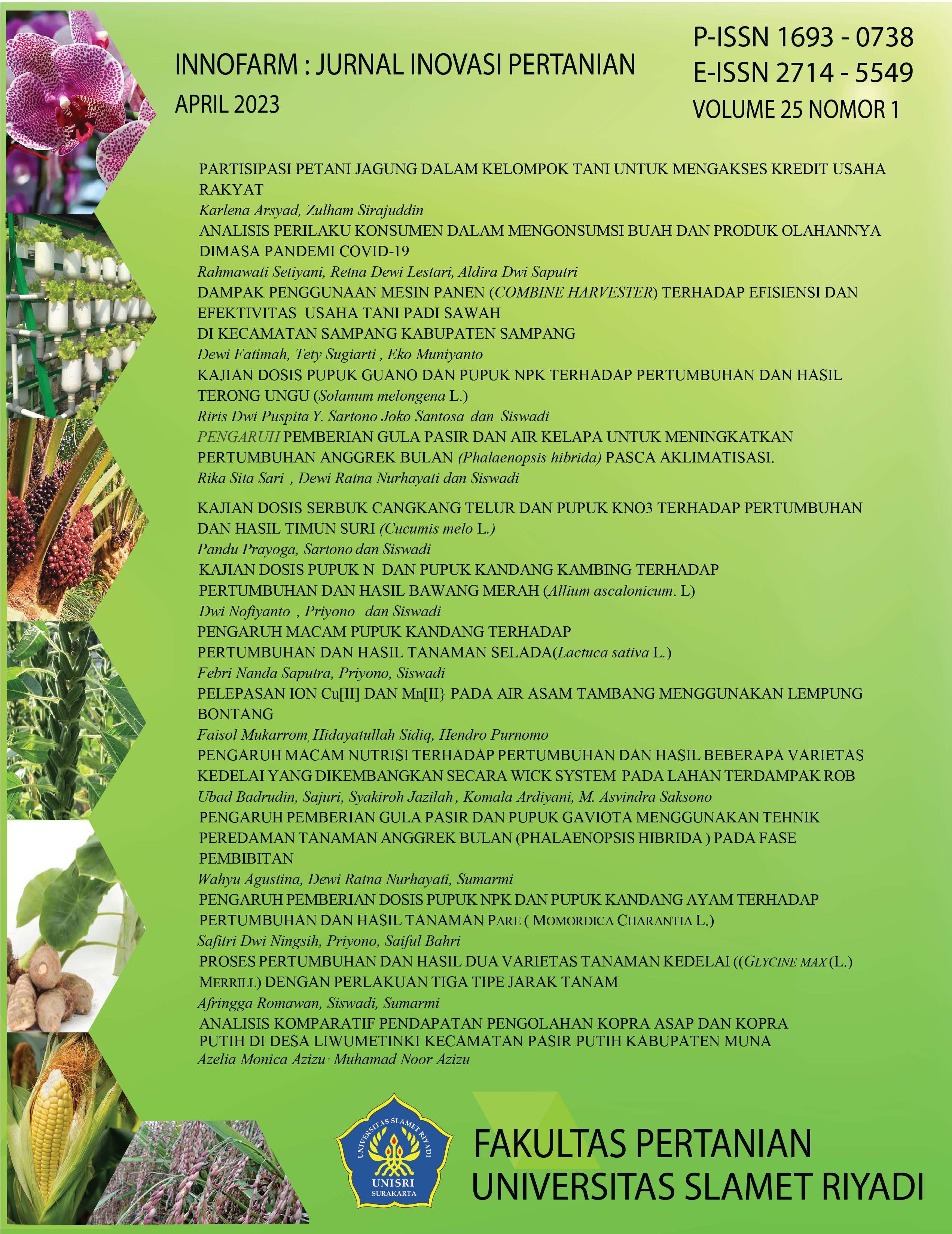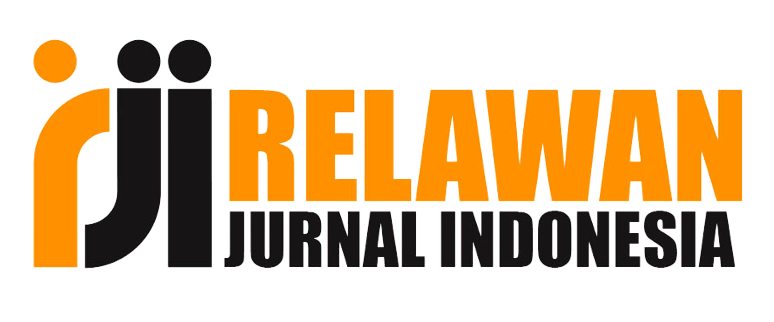ANALISIS KOMPARATIF PENDAPATAN PENGOLAHAN KOPRA ASAP DAN KOPRA PUTIH DI DESA LIWUMETINKI KECAMATAN PASIR PUTIH KABUPATEN MUNA
Keywords: Income; Drying; White
DOI:
https://doi.org/10.33061/innofarm.v25i1.8842Abstract
Copra is one of the results of smallholder plantations which, if managed properly, will provide good income for farmers. This study aimed to determine the magnitude of the difference in income, cost, and feasibility in processing between copra as soon as possible and white copra in Liwumetinki Village, Pasir Putih District, Muna Regency. This research was conducted in August-October 2022 with 11 smoked copra processing farmers and ten white copra processing farmers as respondents. The data used in this research is primary data from interviews with copra farmers. The average total cost of production in processing smoked copra is Rp. 4,330,563 with an income of Rp. 1,201,437, while white copra is Rp. 3,992,685 with an income of Rp. 1,107,315. The R/C ratio value of the two copra products is 1.2, with a profit value of 0.2, indicating the development's feasibility. Meanwhile, based on the comparative value of t count (3.135) > t table (3.75) obtained shows that the income from copra processing is immediately higher than the income from white copra processing.
Downloads
Published
Issue
Section
License
Copyright (c) 2023 azelia monica, Muhamad Noor Azizu

This work is licensed under a Creative Commons Attribution-NonCommercial 4.0 International License.
Authors who publish this journal agree to the following terms:
- Authors retain copyright and grant the journal right of first publication with the work simultaneously licensed under a Creative Commons Attribution License that allows others to share the work with an acknowledgement of the work's authorship and initial publication in this journal.
- Authors can separately make additional contractual arrangements for non-exclusive distribution published by the journal (e.g., publish it in a book), with an acknowledgement of its initial publication in this journal.
- Authors are allowed and encouraged to send their work via online (e.g., in the institutional repositories or their website) after published by the journal.


















